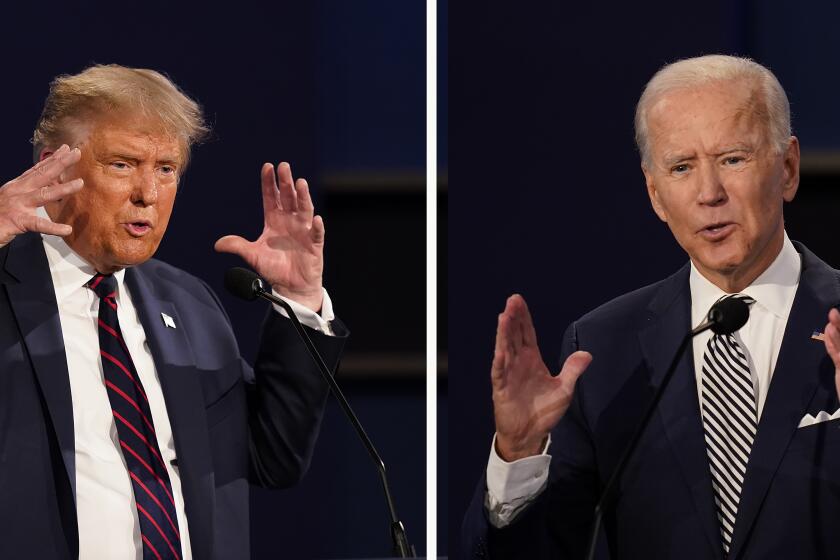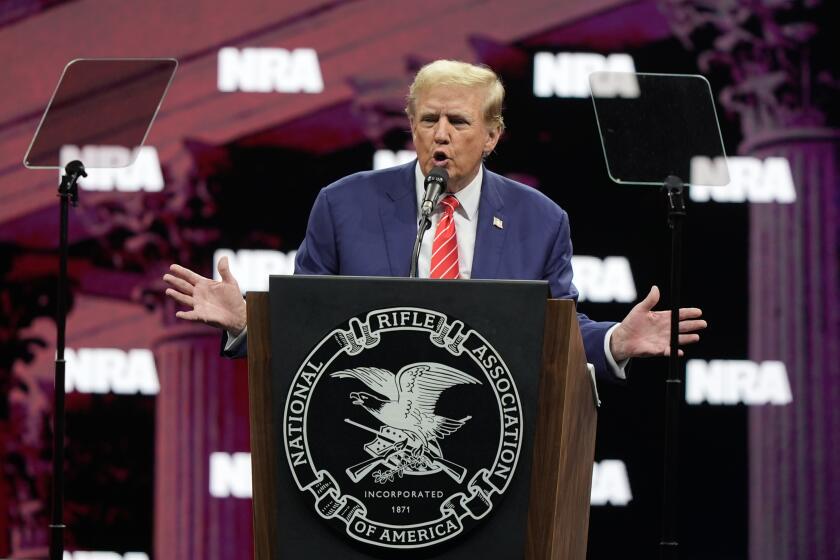Broaden U.N. Jenin Inquiry to Include Palestinians
United Nations Secretary-General Kofi Annan has announced that he will send a commission to investigate whether Israel carried out a massacre and committed war crimes during its recent incursion into the Jenin refugee camp in the West Bank.
Israel, which vehemently denies the allegation, has agreed to an investigation that it believes would clear it--so long as the investigators are unprejudiced and competent. None of the three persons originally named by Annan has a military background, which Israeli officials feel is required to understand urban warfare, though it’s possible that a military member or advisor will be added.
One of those named, Cornelio Sommaruga--until recently the head of the International Committee of the Red Cross--once refused to recognize the Shield of David as an official symbol, saying that if the Red Cross did, why not also accept the swastika? Understandably, against the U.N.’s long history of hostility toward Israel, none of this inspires confidence among Israelis that the commission will be fair.
Still, Israel’s confidence and the U.N.’s credibility as a neutral judge could be bolstered immensely if, simultaneous with its investigation of Palestinian allegations about Jenin, the U.N. would investigate the precise role of the Palestinian Authority in the suicide bombings that have massacred Israeli civilians.
In carrying out such a parallel investigation, the U.N. could eliminate the main stumbling block to restarting a negotiating process that could actually lead to peace.
By now the evidence is abundant that at least some of the suicide killings, perhaps most, were organized and launched by organizations associated with the Palestinian Authority as part of a strategic military policy.
Though such killings of civilians are war crimes, Palestinian defenders have argued that the Palestinian Authority isn’t a state and therefore can’t be held to the same standard as Israel. They’ve added that the suicide bombings are the work of individuals, and international conventions apply only to states.
The Palestinian Authority appears to want it both ways: It’s a state when it claims to represent the Palestinians, and it’s not a state when it claims to have no control over suicide bombers.
This is a dead-end problem for diplomacy because, so long as the Palestinian Authority maintains this stance, there’s no reason for Israel to negotiate with it.
Israel isn’t threatened by Palestinian tanks. It’s threatened by the suicide massacres of its people. It simply can’t live with 20 or 30 civilians being blown up every week or every day with no end in sight.
And if the Palestinian Authority claims it has no control over that threat, then what’s the point of negotiating with it?
Clearly, the suicide bombings are central not only to the immediate crisis but also to the long-term prospect of being able to end this conflict.
Thus the U.N. has a duty to conduct a simultaneous investigation into the role of the Palestinian Authority in the campaign of suicide bombings over which it has claimed to have no control.
Such an investigation would be diplomatically right because it could end the Palestinian pretense that is the main stumbling block to future negotiations. And it would be morally right because the allegation of war crimes by any party must be investigated.
Such a simultaneous investigation would be the honest thing for the United Nations to do. The U.N.’s challenge is to show that it has the honesty to do it.
*
Walter Reich is a professor of international affairs, ethics and human behavior at George Washington University and was the director of the U.S. Holocaust Memorial Museum from 1995 to 1998.
More to Read
Start your day right
Sign up for Essential California for news, features and recommendations from the L.A. Times and beyond in your inbox six days a week.
You may occasionally receive promotional content from the Los Angeles Times.






